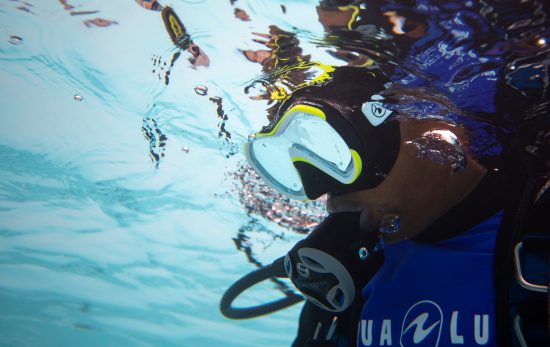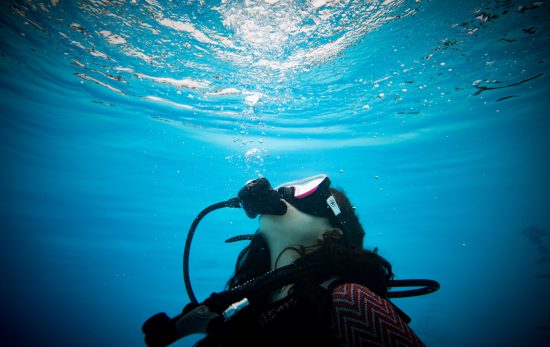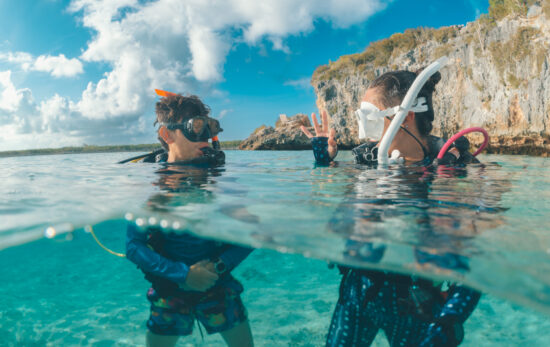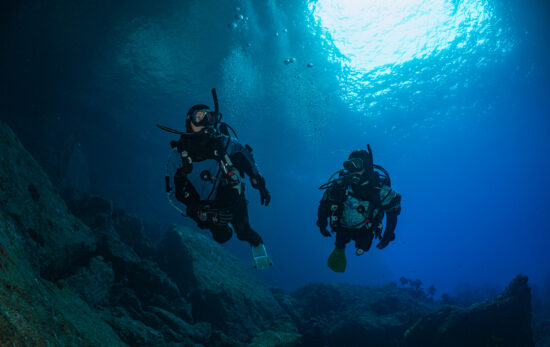Whether you have a dive buddy for life or a different buddy on every dive, the buddy system makes every dive safer and more fun. As with any partnership, things won’t always go smoothly, but by avoiding these seven things, you can enjoy the best possible relationship with your dive buddy.
Ignoring Your Buddy
Underwater, a small problem can become an emergency before you can say humuhumunukunukuapua’a. That’s why it’s important for buddies to swim near each other and check in regularly.
Diverting From the Dive Plan
For some divers, it may seem like no big deal to swim down an extra 6m/20ft to check out a cool coral formation or follow a turtle into the blue, but these spontaneous decisions can be stressful for your buddy, and even a little dangerous. Buddies rely on each other for safety, and it’s not fair to make your buddy chase after you or dive deeper than their comfort level or experience may allow.
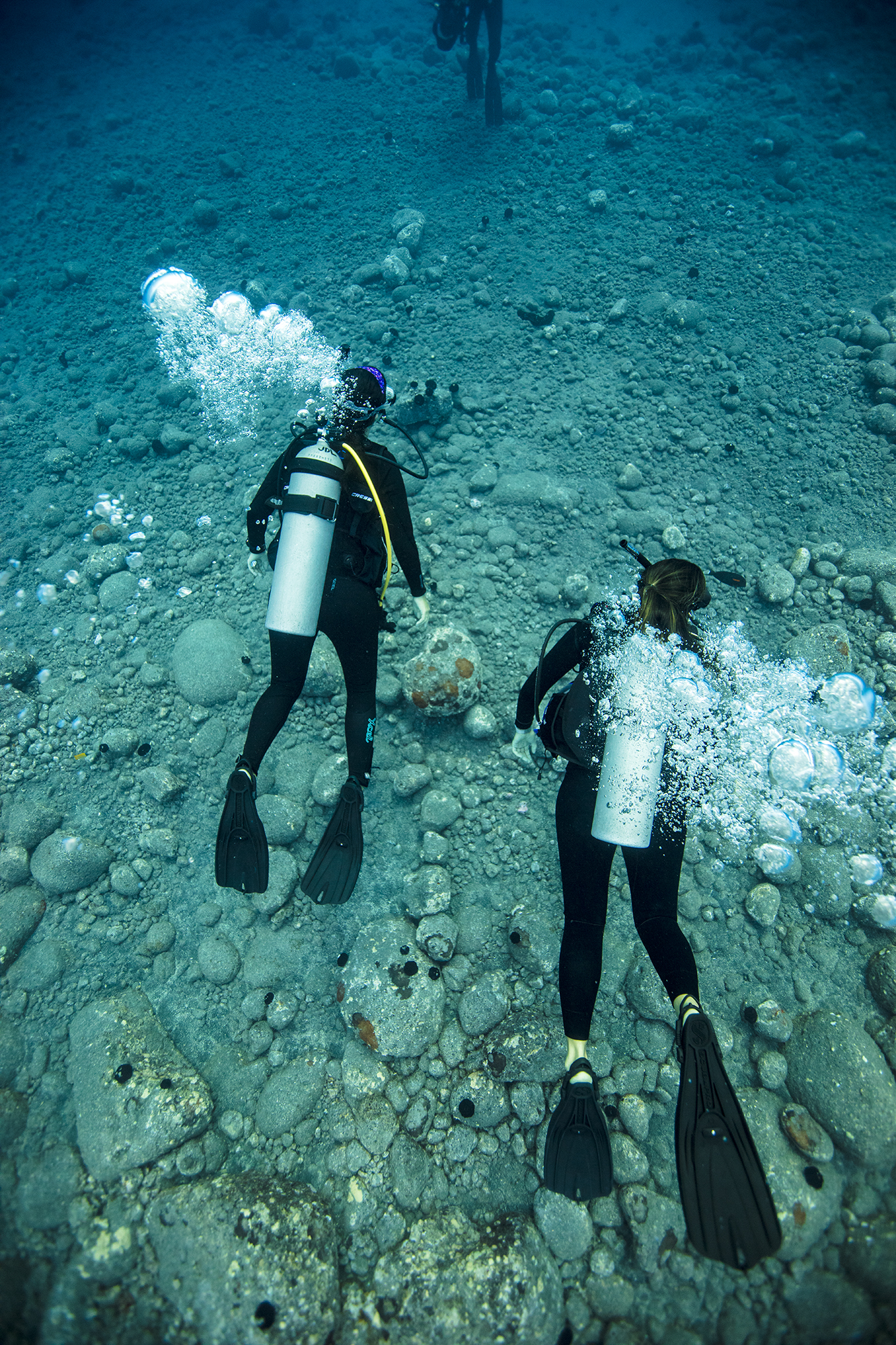
Diving Too Close
Nothing good comes from diving too close to the reef – or another diver. If you’re diving on top of your buddy they can’t see you and may think you’ve gone missing, or ascend right into you. Swimming too close to the reef can damage fragile marine life. Even if you’re just cruising along a sandy bottom, fin wake can stir things up and ruin visibility.
Give your buddy and the reef some space. No one likes having their mask kicked off, or the awful feeling of knocking down a coral structure that took 100 years to form.
Feeling Rushed
Some divers, especially new ones, swim constantly and end up with shortened dives and exhausted buddies. By diving slow and taking the time to wait and see what emerges from the reef, you’ll see more.
On the flip side, some experienced divers deliver scuba hand signals too quickly for new divers to understand. Not everyone has a big underwater vocabulary. Before the dive, it’s a good idea to agree on signals for how much breathing gas you have. When communicating underwater, use slow, exaggerated gestures.
Dive Light in the Eyes
Underwater torches are more powerful than ever, so when your dive buddy accidentally points theirs right at you, it can be quite unpleasant. The PADI® Night Diver specialty course can help you learn better ways to signal your buddy at night or when visibility is poor.
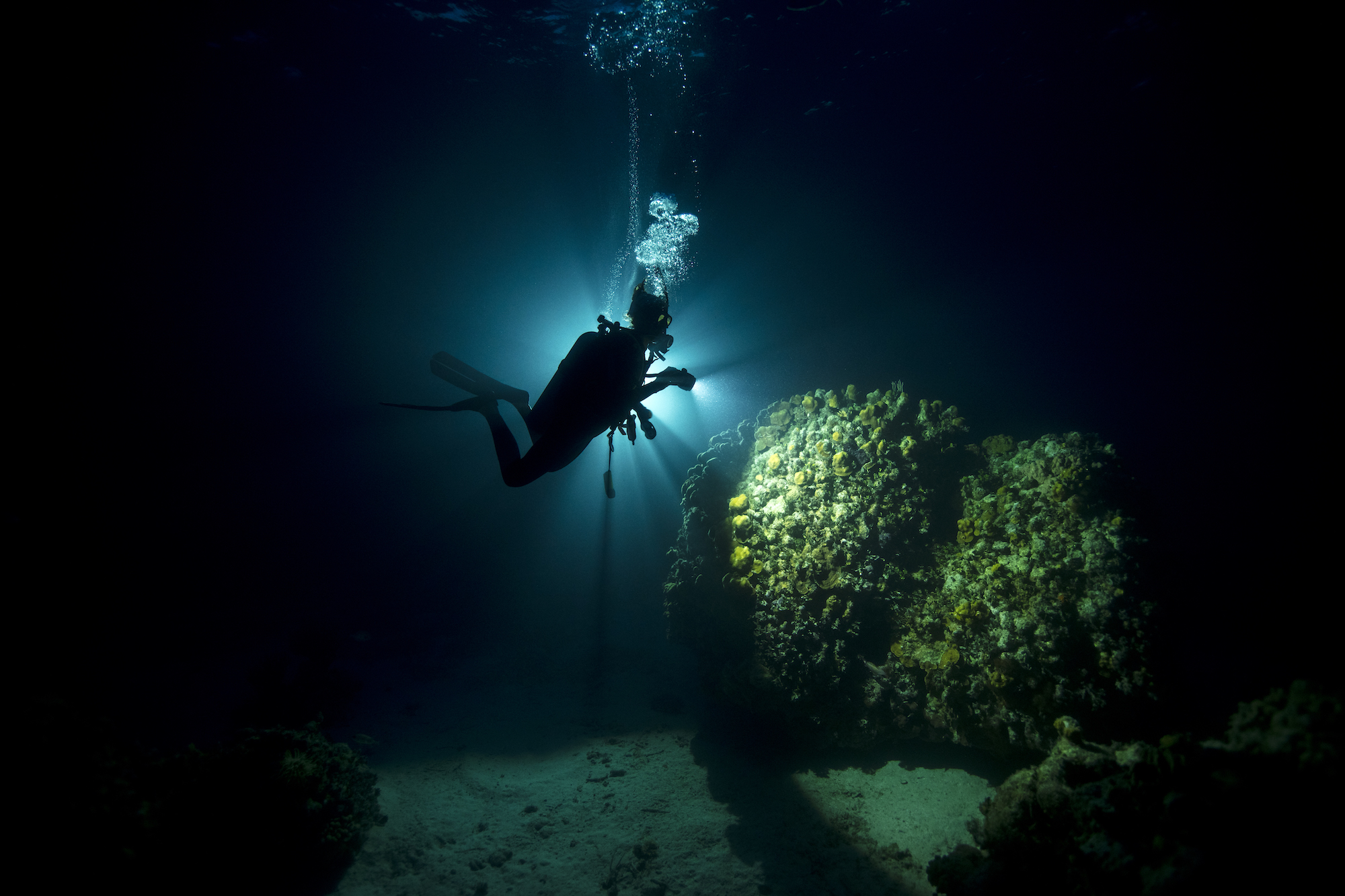
Decrepit Dive Gear
Some equipment issues can’t be helped. Mask straps break unexpectedly and transponders can be finicky. But a leaky BC or regulator prone to free-flowing, these are problems that can be prevented.
Keeping your dive equipment properly-maintained, and replacing it when necessary, is important for safety and dive buddy harmony. There are only so many cancelled dives or long surface swims your dive buddy can tolerate, and diving with equipment in disrepair puts you and your buddy at risk.
Not Diving Together Enough
The number one dive buddy pet peeve? Not diving more often!
At the end of the day, you and your dive buddy have a special relationship. The two of you get to see amazing things and share that experience with each other. There may not be a hand signal for OMG did you see that? but, do you really need one?
If you’re looking for a great reason to get together with your dive buddy, why not look for a Dive Against Debris near you? It’s a chance for you and your buddy to have fun and do something important for the underwater world.
Further Reading
The 11 Different Types of Dive Buddies
4 Easy Ways to Find a Dive Buddy
Scuba Diving Etiquette
5 Ways to Be a Better Dive Buddy

